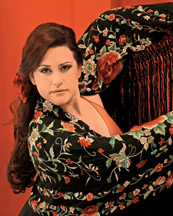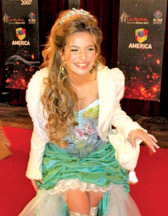Politics and identity in modern Latin American fiction
 Since spending a study year abroad at the Universidad de Veracruz in
Xalapa, Mexico, I have been fascinated by modern Latin American fiction.
The works of literature I find particularly interesting originated from
the Boom (1960s) and Post-Boom eras. Post boom and contemporary
literature is vibrant and varied. One of the biggest Boom legacies was
undoubtedly the use of magical realism in Latin American fiction.
Readers may be familiar with Jorge Luis Borges who was highly
influential for the boom generation, although he is not categorised as a
boom writer. He is perhaps the most defining of Latin American authors
for all time. Since spending a study year abroad at the Universidad de Veracruz in
Xalapa, Mexico, I have been fascinated by modern Latin American fiction.
The works of literature I find particularly interesting originated from
the Boom (1960s) and Post-Boom eras. Post boom and contemporary
literature is vibrant and varied. One of the biggest Boom legacies was
undoubtedly the use of magical realism in Latin American fiction.
Readers may be familiar with Jorge Luis Borges who was highly
influential for the boom generation, although he is not categorised as a
boom writer. He is perhaps the most defining of Latin American authors
for all time.
Others may be more familiar with boom writers such as Julio Cortazar,
Emir Rodriguez Monegal, Carlos Fuentes and Augusto Roa Bastos.
Undoubtedly, the best known author from this literary period is Gabriel
Garcia Marquez, who published 'Cien anos de Soledad' in 1966. The
literary boom arose following greater economic prosperity in Latin
America during the years following the second world war. This new
narrative style can be broadly defined by writers who crossed
traditional boundaries and experimented with new structures. Many were
inspired by North American and European writers such as James Joyce and
Virginia Woolf. The boom was also influenced by the political turmoil in
countries such as Cuba and a number of literary works written during the
boom foreshadowed the dictatorships and economic turmoil the would
follow in the 1970s and 1980s.
|
 |
| Isabelle Allende |
|
 |
| Laura Esquivel |
|
 |
| Laura Segovia |
Conversely post boom contemporary authors generally broke with the
tendency towards the use of magical realism. They also preferred to set
their novels against the backdrop and in the context of contemporary
society and popularised political writing, making it accessible to the
masses. Yet some popular post boom authors such as Laura Esquival traded
on the success of the magical realism which characterised much of genre.
Her popular best seller 'Como agua para chocolate' was also made into a
very well known film. Elena Poniatowska, famous for 'Querido Diego, te
abrazo quierla' engaged in non-fiction chronicles, following the
journalistic style of Carlos Monsivais and Pedro Lemebel. Another well
known post boom author Manuel Puig, who wrote the bestseller 'El beso de
la mujer arana' was well known for his use of irony to make a serious
point. In order to examine how politics and the search for Latin
American identity has influenced post boom contemporary literature, my
first article on Politics and Identity in Modern Latin American Fiction
will focus on 'La Casa de Los espiritos' by Isabel Allende.
'La casa de los espiritos' chronicles the lives of three generations
of the Trueba family of Chile. The novel has been compared repeatedly to
Marques's 'Cien anos de soledad' and it is clear that Allende owes
Marques a great debt. In both novels, Latin American history is explored
through the medium of a lengthy family saga and many parallels can be
drawn between characters in both novels. What is different is that 'La
casa de los espiritos' refers unequivocally to a specific reality,
whereas 'Cien anos de soledad' offers allegorical glimpses of reality
from the refuge of patent unreality. However, both novels are magical
realist, with characters life being punctuated by fantastic and
improbable events. In Allende's work, the references to 20th century
Chile are unmistakable and the saga of the Trueba family does not only
represent the Chilean experience but takes place within a modern Chilean
context and is shaped by it. Hence there is a greater realism about the
more recent novel.
The story documents the fortunes of the the del Valle and Trueba
family, focusing mainly on Clara and Rosa del Valle who are the
daughters of Severo and Novea del Valle. Their youngest daughter, Clara,
has paranormal powers and keeps a detailed diary of her life. Using her
physic abilities, Clara predicts a death in the family. Shortly after
this her sister Rosa the Beautiful dies, breaking the heart of Esteban
Trueba who is the main male character and whose life provides a
narrative backbone to the novel. He is deeply in love with the
mermaid-like, green-haired Rosa and has been toiling in the mines to
earn a suitable fortune so that he can support her. Following her death
he eventually marries Clara and after their wedding, his dreamy, passive
wife finds happiness in developing her psychic powers and spirits,
artists, and mediums flock to the Truebas' big house in the city.
Clara's world represents the indigenous population of Latin America,
with the implication that the native people are deeply mysterious and
unknowable to the European conquistadors.
Clara gives birth to a daughter named Blanca who as a young woman
befriends a boy named Pedro Tercero who lives near the family hacienda
in the countryside at Tres Marias that Esteban Trueba inherited from his
family and made his fortune improving. Pedro Tercero and Blanca
eventually become lovers. Life runs smoothly until Pedro Tercero is
banished from the hacienda by Esteban, on account of his revolutionary
communist/socialist ideas. Clara spends her time teaching and helping
peasant children and Blanca is sent to a convent school. Eventually
Blanca fakes an illness so that she can return to the hacienda and be
close to Pedro Tercero. She subsequently gives birth to their daughter,
Alba, yet is forced to marry a French Count named Jean de Satigny.
It is significant that one of the main characters, upon whose diaries
the text is based, is called Clara, translating as 'Clear' and 'Claire'
as not only is she clairvoyant but her name implies the need for clarity
as do the names of her children and grandchildren. The names Novea,
Clara, Blanca, and Alba are more or less synonyms. However, Novea means
snow-white and while Alba means white in Latin, it also means Dawn in
Spanish. Alba herself does represent the dawn of a new beginning and is
key in the search for an authentic, contemporary Latin American
identity. She is the bridge between the passive, oppressed peasants (who
the other women in the family represent) and her grandfather, Esteban
Trueba, who represents the European invaders and the old patriarchal
system. This is highlighted at the beginning of the novel, when Esteban
rapes Panchia Garcia, a reference to the plundered lands and indigenous
population who have been violated.
As the novel progresses, Esteban becomes isolated from every member
of his family except for Alba, whom he is very fond of. He has a tense
relationship with his daughter Blanca but shows genuine love and
devotion to his granddaughter. He runs as a senator for the Conservative
Party but is nervous about whether or not he will win. Clara informs him
that "those who have always won will win again" and this becomes his
motto. This suggests a feeling in Chile and Latin America as a whole
that oppressive, patriarchal dictatorships will always win. Blanca
eventually leaves Jean and once again begins dating Pedro Tercero, now a
revolutionary singer/songwriter.
When she is older, Blanca's daughter Alba attends a local college
where she meets Miguel, a revolutionary and out of love for him she
involves herself in student protests against the conservative
government. After the victory of the People's Party (a socialist
movement), Alba celebrates with Miguel. Fearing a Communist
dictatorship, Esteban Trueba and his fellow politicians plan a military
coup against the socialist government. However, when the military coup
is set into action, the military men relish their power and grow out of
control. Esteban's gentle son Jaime is viciously and pointlessly killed
by power-driven soldiers along with many others. This brings about a
radical change in his attitude and character as a direct result of
watching those who possess power spiralling out of control, which
mirrors the political situation in Latin America.
'La casa de los espiritos' also offers a female perspective on
reality. Though Esteban Trueba provides a narrative backbone to the
novel, the patriarchy that he engenders provides a counterpoint to the
attitudes and behaviours of the female characters. Not only do they
represent increasing independence with each new generation, they also
show women's integration in the class struggle. Nivea is a suffragette
yet well off and not at all in touch with the working classes.
Her daughter Clara defies her husband, shunning domestic duties as
well as wearing feminine clothes and jewellery. Then her daughter Blanca
stands up to her father, has a child out of wedlock and a lasting love
affair with a peasant leader and revolutionary singer. Finally her
daughter Alba joins a student political movement and falls in love with
a guerrilla leader. She identifies with ordinary people when she is
tortured alongside them, put into a prison camp and eventually ends up
in a shanty town.
The combination of optimism and political realism in the novel is a
key pointer to the direction of much post-boom fiction. The pessimism
and abract contemplation found in many Boom novels is on the wane and
the post-boom novel (via popular forms) focuses directly on Latin
America's political tragedies in a direct and meaningful way, offering
hope for the future. |

